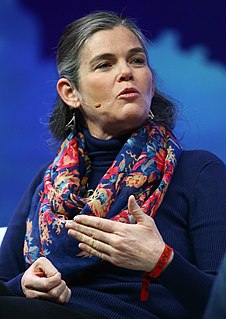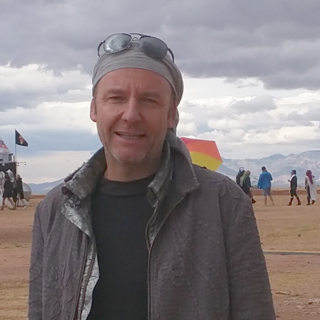HEC Montréal is a Canadian business school located in Montreal, Canada. Founded in 1907, HEC Montréal is the graduate business school of the Université de Montréal and known as the first established school of management in Canada.

MIT Computer Science and Artificial Intelligence Laboratory (CSAIL) is a research institute at the Massachusetts Institute of Technology (MIT) formed by the 2003 merger of the Laboratory for Computer Science (LCS) and the Artificial Intelligence Laboratory. Housed within the Ray and Maria Stata Center, CSAIL is the largest on-campus laboratory as measured by research scope and membership.
Microsoft Research (MSR) is the research subsidiary of Microsoft. It was formed in 1991, with the intent to advance state-of-the-art computing and solve difficult world problems through technological innovation in collaboration with academic, government, and industry researchers. The Microsoft Research team employs more than 1,000 computer scientists, physicists, engineers, and mathematicians, including Turing Award winners, Fields Medal winners, MacArthur Fellows, and Dijkstra Prize winners.

Daphne Koller is an Israeli-American Professor in the Department of Computer Science at Stanford University and a MacArthur Fellowship recipient. She is one of the founders of Coursera, an online education platform. Her general research area is artificial intelligence and its applications in the biomedical sciences. Koller was featured in a 2004 article by MIT Technology Review titled "10 Emerging Technologies That Will Change Your World" concerning the topic of Bayesian machine learning.
D-Wave Systems, Inc. is a Canadian quantum computing company, based in Burnaby, British Columbia, Canada. D-Wave was the world's first company to sell computers to exploit quantum effects in their operation. D-Wave's early customers include Lockheed Martin, University of Southern California, Google/NASA and Los Alamos National Lab.
Barney Pell is an American entrepreneur, angel investor and computer scientist. He was co-founder, Vice Chairman and Chief Strategy Officer of Moon Express; co-founder and Chairman of LocoMobi; and Associate Founder of Singularity University. He was co-founder and CEO of Powerset, a pioneering natural language search startup, search strategist and architect for Microsoft's Bing search engine, a pioneer in the field of General Game Playing in Artificial Intelligence, and the architect of the first intelligent agent to fly onboard and control a spacecraft.
Artificial intelligence, defined as intelligence exhibited by machines, has many applications in today's society. More specifically, it is Weak AI, the form of AI where programs are developed to perform specific tasks, that is being utilized for a wide range of activities including medical diagnosis, electronic trading platforms, robot control, and remote sensing. AI has been used to develop and advance numerous fields and industries, including finance, healthcare, education, transportation, and more.

Hartmut Neven is a scientist working in quantum computing, computer vision, robotics and computational neuroscience. He is best known for his work in face and object recognition and his contributions to quantum machine learning. He is currently Director of Engineering and Distinguished Scientist at Google where he is leading the Quantum Artificial Intelligence Lab which he founded in 2012.

Yann André LeCun is a French-American computer scientist working primarily in the fields of machine learning, computer vision, mobile robotics, and computational neuroscience. He is the Silver Professor of the Courant Institute of Mathematical Sciences at New York University, and Vice President, Chief AI Scientist at Facebook.

Figure Eight is a human-in-the-loop machine learning and artificial intelligence company based in San Francisco. The company raised $58 million in venture capital and was acquired by Appen in March 2019 for $300 million.

Andrew Yan-Tak Ng is a Chinese-American businessman, computer scientist, investor, and writer. He is focusing on machine learning and AI. As a businessman and investor, Ng co-founded and led Google Brain and was a former Vice President and Chief Scientist at Baidu, building the company's Artificial Intelligence Group into a team of several thousand people.
Maluuba is a Canadian technology company conducting research in artificial intelligence and language understanding. Founded in 2011, the company was acquired by Microsoft in 2017.
The Quantum Artificial Intelligence Lab is a joint initiative of NASA, Universities Space Research Association, and Google whose goal is to pioneer research on how quantum computing might help with machine learning and other difficult computer science problems. The lab is hosted at NASA's Ames Research Center.

Rana el Kaliouby is an Egyptian-American computer scientist and entrepreneur in the field of expression recognition research and technology development, which is a subset of facial recognition designed to identify the emotions expressed by the face. El Kaliouby's research moved beyond the field's dependence on exaggerated or caricatured expressions modeled by laboratory actors, to focus on the subtle glances found in real situations. She is the co-founder, with Rosalind Picard, and CEO of Affectiva.
Catherine Havasi is an American scientist who specialises in artificial intelligence (AI) at MIT Media Lab. She is co-founder and CEO of AI company Luminoso. Havasi was a member of the MIT group engaged in the Open Mind Common Sense AI project and that created the natural language AI program ConceptNet.
Reza Zadeh is a Canadian-Iranian Computer Scientist working on Machine Learning. He is adjunct professor at Stanford University and CEO at Matroid. He has served on the technical advisory board of Microsoft and Databricks. His work focuses on Machine Learning, Distributed Computing, and Discrete Applied Mathematics.
Google AI is a division of Google dedicated solely to artificial intelligence. It was announced at Google I/O 2017 by CEO Sundar Pichai.
Ajay Agrawal works at the University of Toronto’s Rotman School of Management as the Geoffrey Taber Chair in Entrepreneurship and Innovation as well as the Professor of Strategic Management.
Carol Elizabeth Reiley is an American businesswoman, computer scientist, and writer. She is a pioneer in teleoperated and autonomous robot systems in applications such as surgery, space exploration, disaster rescue and self driving cars. Reiley previously worked at Intuitive Surgical, Lockheed Martin, and General Electric. She co-founded, invested, and was President of Drive.ai raising over $77 million. She is a published children's book author, is currently CEO of a healthcare startup, a creative advisor for the San Francisco Symphony, and a brand ambassador for Guerlain Cosmetics. She is the first female engineer on the cover of MAKE magazine, and is recognized by Forbes, Inc, and Quartz as a top female entrepreneur.
Marzyeh Ghassemi is a Canada-based researcher in the field of computational medicine, where her research focuses on developing machine-learning algorithms to inform health-care decisions. She is currently an assistant professor at the University of Toronto's Department of Computer Science and Faculty of Medicine, and is a Canada CIFAR Artificial Intelligence (AI) chair and Canada Research Chair in machine learning for health.






